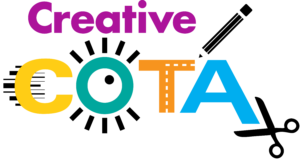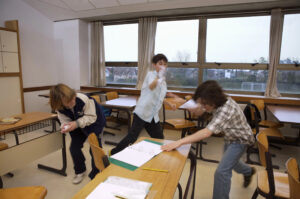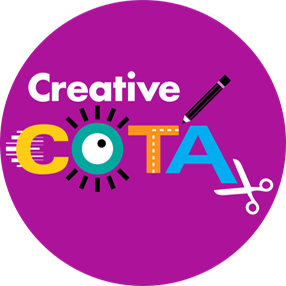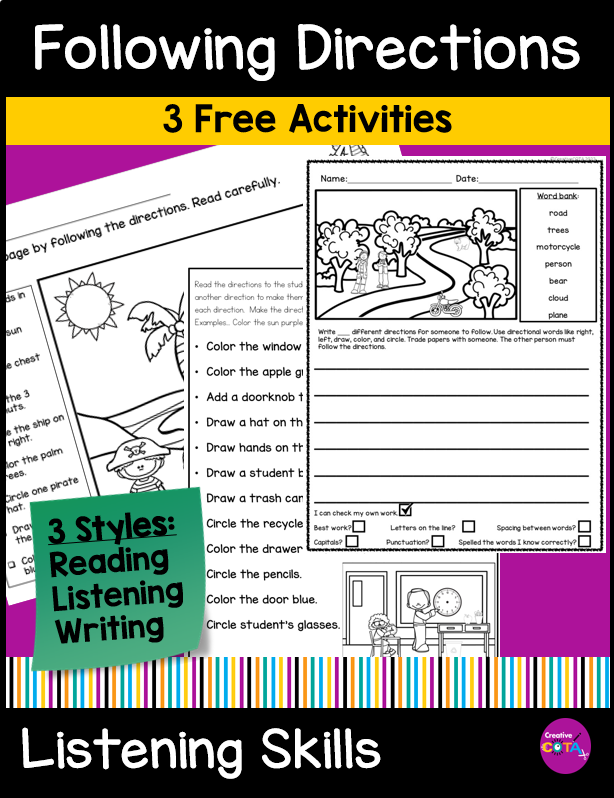
Welcome back to another school year! As occupational therapists and teachers, the beginning of the year is a crucial time to assess where our students are at. Getting an early idea of where their drawing, handwriting, coloring, and cutting skills are will help you monitor their progress. One fun and effective way to do this is through an “All About Me” activity. This simple task can provide valuable insights into your students’ fine motor skills, drawing, handwriting legibility, and visual perceptual abilities.
Why Use an “All About Me” Activity?
Using an “All About Me” activity at the start of the year is a great way to engage students while assessing their skills. It’s a fun and personal task that students enjoy, which makes it easier to get a good read on their abilities. Plus, it gives us a glimpse into their personalities and interests, helping us build a stronger connection. Consider creating your own to give students a model and let them know a little about you. Self-portraits can also make a great addition to a back-to-school bulletin board.
Components of the “All About Me” Activity
Writing Section: Have a section where students write about their favorite things, their family, and their hobbies. Pay attention to how they form letters, their spacing, and how they stay on the lines.
Drawing Section: Include a part where students draw a self-portrait, where they live, who they live with or something they enjoy. Adding where they live and who they live with will give you valuable insight into their home life. This helps assess their fine motor control and visual perceptual skills.
Observation Tips: Watch how they hold their pencils, and how they approach drawing and writing, and note any areas where they struggle or excel. How many details do they add to their pictures?

Adding a Craft Activity
To assess their cutting, coloring, and gluing skills, add a simple Fall craft activity. A paper plate apple core is a great low-prep activity that requires minimal prep time.

Materials and Instructions: You’ll need paper plates, a Sharpie, green and brown construction paper, scissors, crayons, and glue. Prep the paper plate by adding the 2 curved lines on the back. Make a model for your students to copy.
- Cut the paper plate
- Color
- Cut out stem, leaf, and seeds
- Glue together
You can gain valuable insights into your student’s executive function skills by providing a model and asking them to identify the materials needed and the steps required to complete the task. Write out the materials on a piece of paper or board and guide them through the process as needed.
Observation Tips: Watch how they handle scissors and their precision in cutting. How far from the line do they cut? How do they hold the crayons, how much pressure do they use? Check out their visual perception skills when copying the model and their executive function planning skills as they put it all together.
Analyzing the Results
Fine Motor Skills:
- Look at how students handle scissors and pencils.
- Assess the control and precision in their drawing and cutting.
Handwriting Legibility:
- Evaluate the neatness of their handwriting.
- Check for proper letter formation, spacing, and size consistency.
Visual Perceptual Skills:
- Observe how students align and organize their drawings and written work.
- Note their ability to follow the layout and stay within boundaries.
Executive Function Skills:
- Planning and Sequencing: How well do they follow the steps of the activity? Do they complete tasks in a logical order?
- Attention to Detail: Are they able to focus on the task without getting distracted? Do they include all required elements in their work?
- Problem-Solving: How do they handle challenges, such as cutting out shapes or fixing mistakes in their drawings or writing?
Conclusion
Based on what you observe, you can set individual goals for each student. Design your interventions to address specific areas that need improvement. Keep an eye on their progress throughout the year and adjust goals as needed.
Using an “All About Me” activity and a simple low prep craft is a great way to start the school year. These tasks give you valuable insights into your students’ abilities and help you plan effective interventions. Give these activities a try and see how they work for you.
Happy assessing and have a fantastic start to the school year!
About the Author
I am a Certified Occupational Therapy Assistant (COTA) and have been working in a public school system for more than 25 years. My resources can be found on TPT, BOOM Learning, Made by Teachers, Classful, and Your Therapy Source. I appreciate your interest wherever you wish to shop.
My mission is to help you find creative ideas to incorporate fine motor, visual perception, gross motor, and social-emotional learning into your lessons.
I hope you consider signing up for my Free Resource Library with your Email. I send out emails about once a week and share resources, tips, and planning ideas for your classroom or occupational therapy needs. Hopefully, these help your students work on building their skills in a fun and engaging way.






